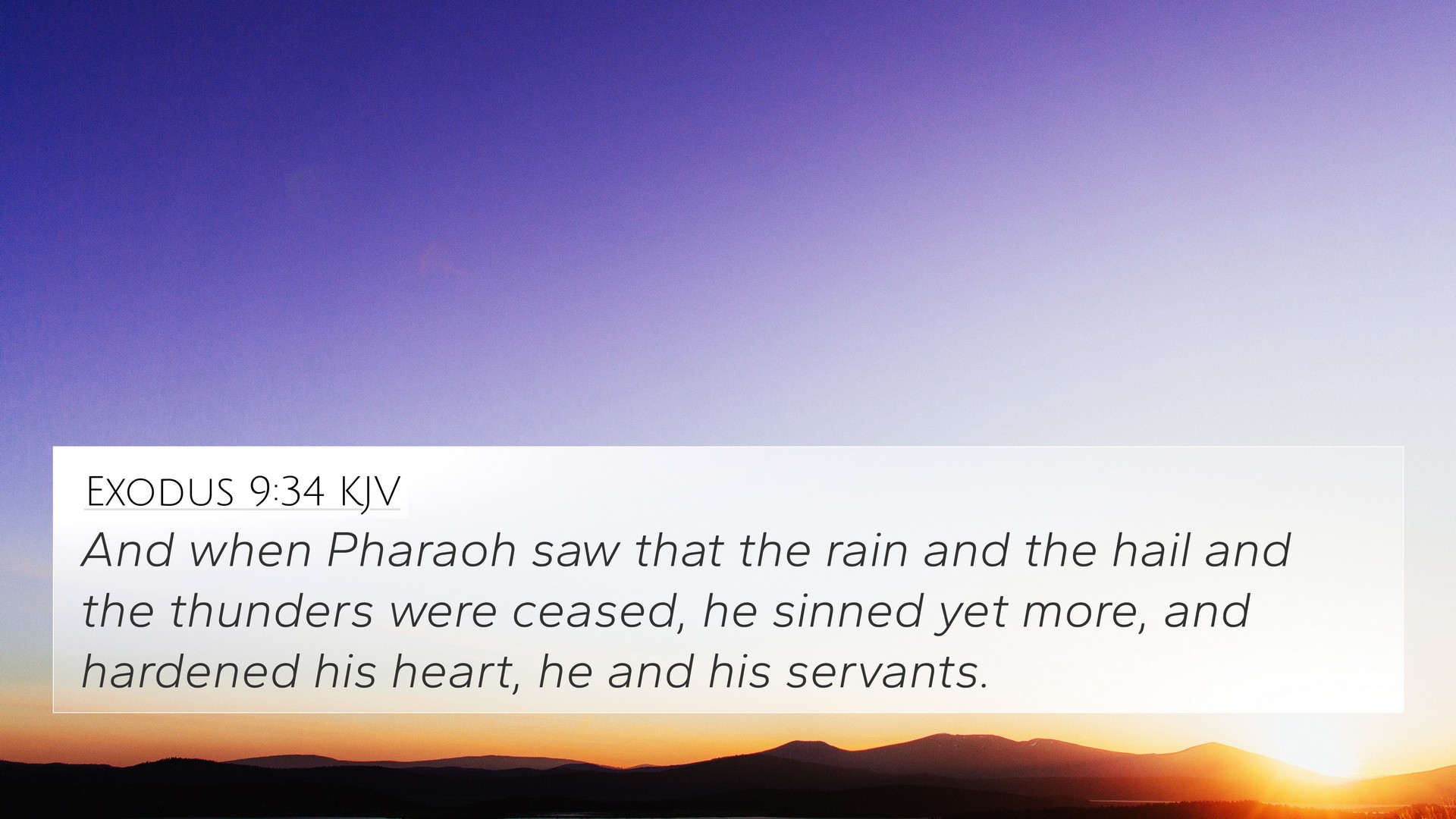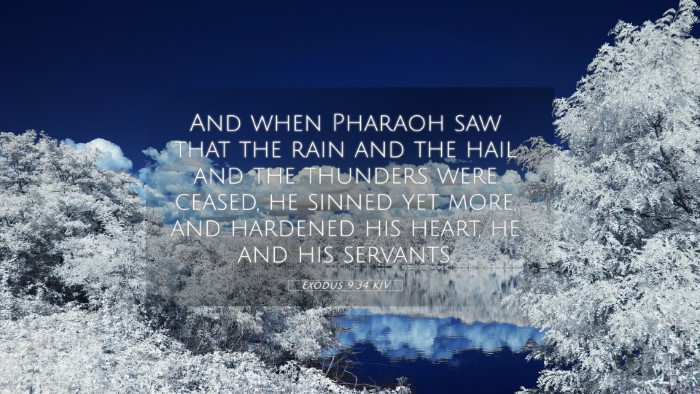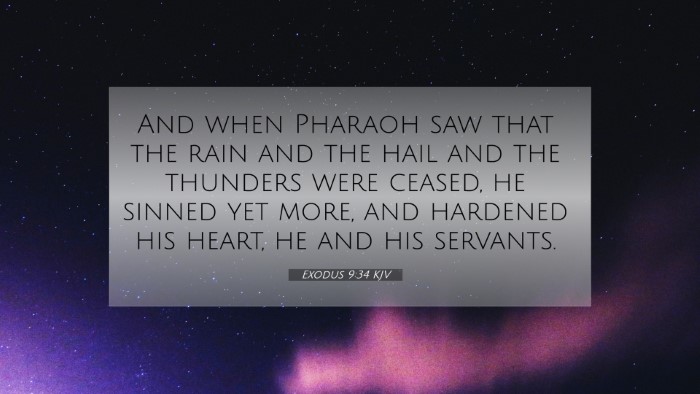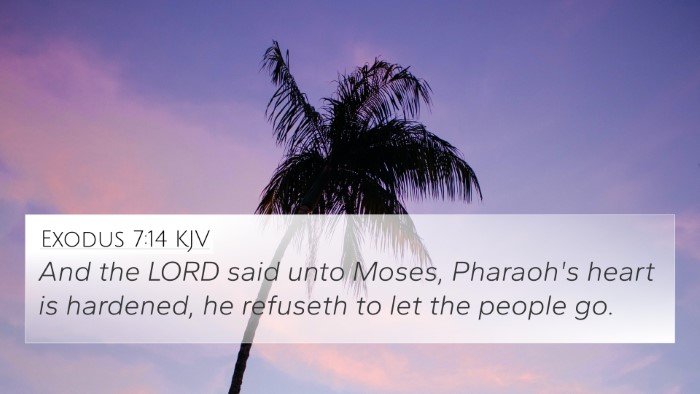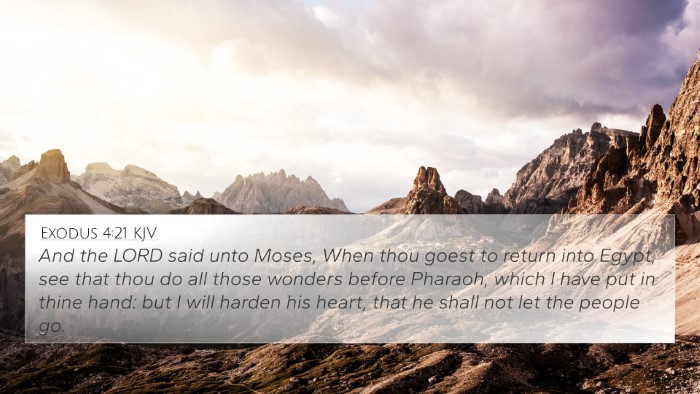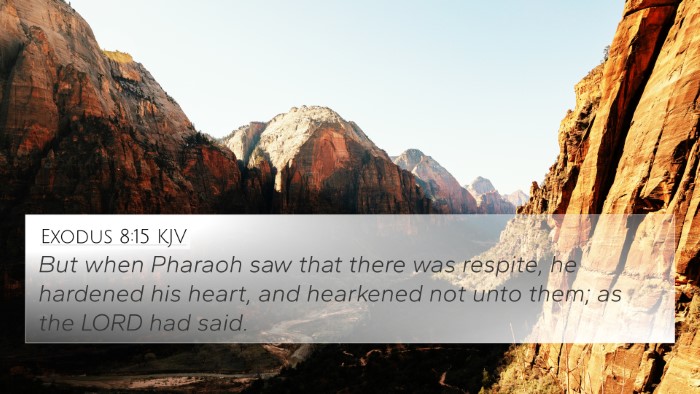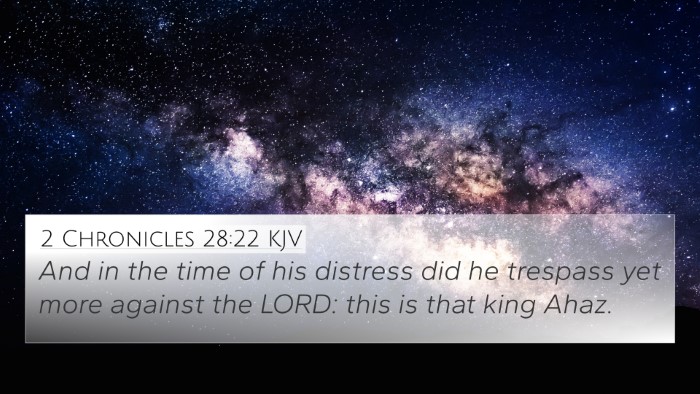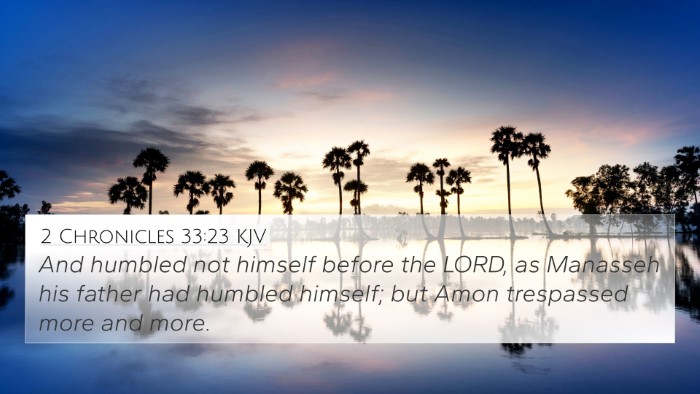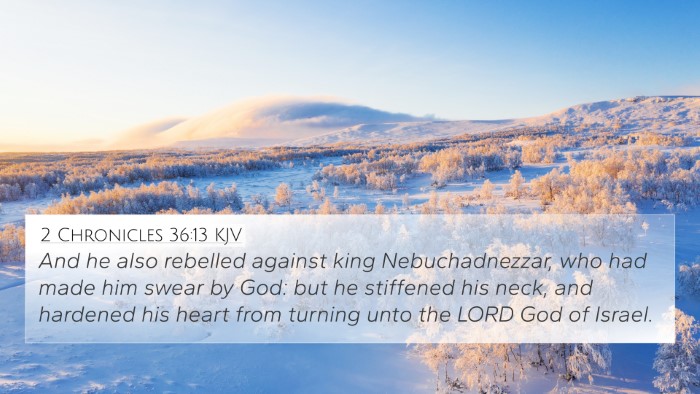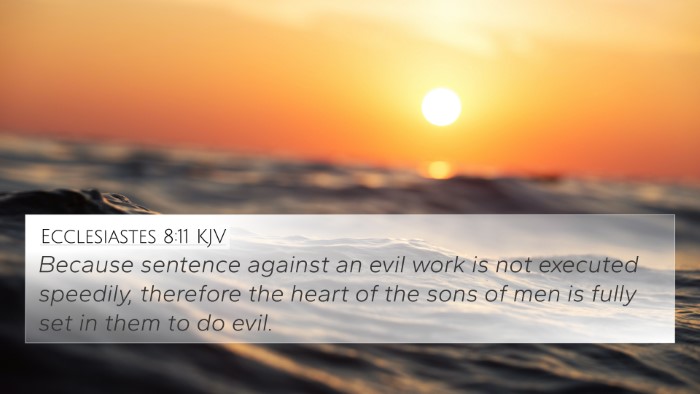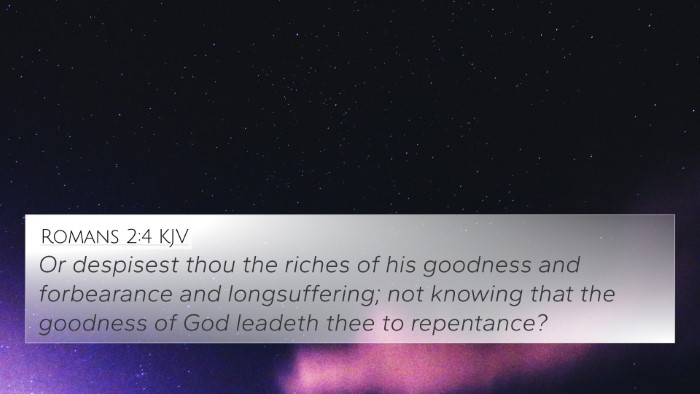Understanding Exodus 9:34
Exodus 9:34 reads, "And when Pharaoh saw that the rain and the hail and the thunders had ceased, he sinned yet more, and hardened his heart, he and his servants." This verse captures a critical moment in the narrative of Exodus, demonstrating Pharaoh's persistent rebellion against God, even in the face of divine judgment.
Summary of the Verse Meaning
In this passage, Pharaoh's heart hardening represents a significant theme throughout the Book of Exodus. It indicates his refusal to acknowledge God's sovereignty and the consequences of his disobedience. Despite witnessing the plagues and the power of God, Pharaoh continues to resist, which serves as a powerful reminder of human obstinacy in the face of clear divine signs.
Thematic Explorations and Analysis
The concept of hardening one's heart is not only relevant to this verse but also resonates through various scriptures. Through the lens of public domain commentaries, we can derive several insights:
-
Matthew Henry: He emphasizes the danger of seeing God's mercies and judgments without yielding to His will. Pharaoh's hardened heart signifies a rejection of repentance and acknowledgement of God's authority.
-
Albert Barnes: Barnes highlights that the cessation of the plagues should have led Pharaoh to humble himself; however, his persistence in sin showcases the hard-heartedness that can come from pride and self-reliance.
-
Adam Clarke: Clarke notes that the connection between Pharaoh's hardened heart and the plagues illustrates the relationship between divine power and human response. His refusal to repent after experiencing God's wrath reflects a profound misunderstanding of the nature of God.
Cross-References to Exodus 9:34
Here are some relevant cross-references that deepen our understanding of this verse:
- Exodus 7:3: "And I will harden Pharaoh's heart..." - This introduces the theme of God allowing Pharaoh's heart to be hardened.
- Exodus 8:15: "But when Pharaoh saw that there was respite, he hardened his heart..." - Illustrates a pattern in Pharaoh's responses to God's miracles.
- Romans 9:18: "Therefore hath he mercy on whom he will have mercy, and whom he will he hardeneth." - Reflects on God’s sovereignty over human hearts.
- Deuteronomy 5:29: "Oh, that there were such an heart in them, that they would fear me..." - A longing for a responsive heart towards God.
- 1 Samuel 6:6: "Wherefore then do ye harden your hearts as the Egyptians and Pharaoh hardened their hearts?" - A direct reference to the consequences of hardening one's heart.
- Hebrews 3:15: "Today, if ye will hear his voice, harden not your hearts..." - A New Testament caution against hardening hearts.
- 2 Corinthians 4:4: "In whom the god of this world hath blinded the minds of them which believe not..." - The danger of spiritual blindness, connecting with the theme of hardened hearts.
Connections Between Bible Verses
The act of resisting divine authority and turning away from repentance is illustrated through various stories in the Bible. These connections emphasize the recurring issues of disobedience, a theme that is central to understanding the relationship between God and humanity.
Linking Biblical Texts
Direct parallels can be drawn between Exodus 9:34 and New Testament teachings. The idea of a hardened heart often leads to spiritual blindness, illustrated in the Gospels where people fail to see the truth despite witnessing the miracles of Jesus.
Comparative Bible Verse Analysis
By analyzing the responses of both Pharaoh and the multitude who encountered Jesus, we can examine the implications of hardening one's heart in different contexts—the exodus from Egypt and the revelation of Christ.
Practical Application
Understanding Exodus 9:34 prompts us to reflect on our own hearts. Are we receptive to God's warnings? Do we acknowledge His power in our lives? This verse encourages us not to harden our hearts but to remain open to divine guidance.
Tools for Bible Cross-Referencing
Engaging with tools for cross-referencing such as Bible concordances and study guides can help believers deeply explore and understand these themes. Creating an inter-Biblical dialogue can enhance one’s study of scripture and reveal insights previously unnoticed.
Conclusion
Exodus 9:34 serves as a poignant illustration of the human condition in relation to divine authority. By studying this verse alongside its cross-references, believers can glean profound insights into the nature of God, the consequences of disobedience, and the importance of maintaining a humble and receptive heart towards spiritual truths.
